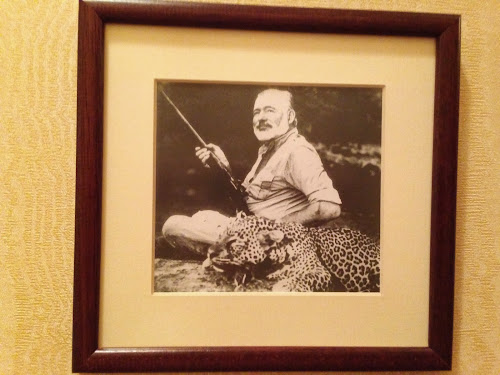ESS only has 50% funding from Sweden, Denmark, and Norway. The other 50% still needs to be secured. To do this we send groups of people throughout Europe to negotiate million dollar deals. Lithuania is one of those countries. ESS had already been there once, and the ministry of science requested that we come back for a science day. The country needs to see that there will be some interest from their own researchers in order to feel good about contributing. I was asked to give a talk on my hydrate research and got to tag along.
It was a really quick trip, but a great opportunity. I got to have dinner with the President of the National Academy of Sciences (and got a private tour of his office), the Vice Minister of Science, the Director of the Research Council, and various other affiliated people.
At first look, the city looked like what you would expect an Eastern Bloc country to look like. The buildings were in disrepair and everything was gray. It made me a bit sad on the drive into town from the airport. We were in Vilnius, the capital. I took a couple of pictures, but then had flashbacks of bad 80's movies where curious people in communist countries were "taken care of." Of course they aren't communist now, and they are part of the EU, but Russians as bad guys was drilled into me until I graduated high school. Lithuanians are very quick to tell you that they aren't Russian.
The evening we arrived, we met with the organization heads for a briefing in an old but beautiful building. After we had dinner. It just so happened that we were staying in the hotel where the ministry had planned the dinner.
Diner was very nice. We had a salmon and cream cheese appetizer, duck breast for the main, and pana cota for dessert. The woman I sat with at dinner had grown up during the occupation. She still speaks Russian, but finds that if she is speaking to a Russian, she uses English instead. There were rations for everything when she was a kid. You were only allowed 200 g of butter, so she and her mom would stand separate in line and each get a ration. She said everything was grey in those days. Her uncle traveled to Western Europe and boasted about all the brightly colored plastic things he had seen.
Our hotel was called Shakespeare, and the rooms had author's names instead of room numbers. It was a great hotel. In our group, there was only one American author room assignment, Ernest Hemingway. I just so happened to get that room. I felt right at home as it was decorated in a theme to match his life.
Since we were only staying the one night, and the schedule was tight on Tuesday, Esko and I did some walking around after the others turned in. The city center was quite nice, and it was good to wander around the narrow cobblestoned streets.
The next morning a member of the ministry met us at the hotel and walked with us over to the National Academy's building. I kept getting further and further behind the group as I stopped to take pictures.
The National Acdemy building was a fantastic building. It had been a Russian bank. Even though the Russian population is only about 7%, menus and signs can still be seen in Russian as well as Lithuanian. When the president showed me his office he also gave me some of the history. The desk he uses is the same desk that the National Acdemy was signed into existence on in 1941. It's hard to imagine that there was some good going on somewhere during those times in Europe.
We gave our talks, had some lunch (the ministry had reserved a local cafe), and headed back to the airport. I enjoyed my trip very much. The people were so friendly with great hospitality and I wouldn't hesitate at all to visit the Eastern Bloc again. In fact, we are headed to Hungary in a couple of weeks!






















No comments:
Post a Comment